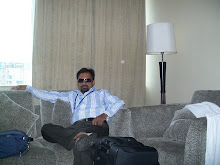Resiliency in Vulnerable Groups: A Study on Dhankut of District Bahraich of Uttar Pradesh, India
Alok Chantia * Preeti Misra**
*Lecturer, Dept. of Anthropology, Sri Jai Narain Post Graduate College, (KKC) Lucknow; E-Mail alokchantia@rediffmail.com; alokchantia@gmail.com
**Lecturer, Dept of Human Rights, School for Legal Studies, Babasaheb Bhimrao Ambedkar University, Lucknow; E-Mail misra9us@gmail.com;misra9_us@yahoo.com
The people have ability to feel better quickly from sth unpleasants as shock, injury etc due to his pleasant efforts in the form of culture. The concept of Nation- state gave men many socio-legal armour to protect themselves from social and natural problems. But whether it is culture or state, both have limited capacity to fulfill the needs and desires of its people. It is not possible to give equal and equitable canvas to everybody for growth and development. In Indian scenario many constitutional and legal provisions are given which provide a pseudo picture of equality, liberty and fraternity of vulnerable groups but reality is just opposite. Presently 698 tribal groups, 3742 OBC groups and approximately more than 1000 scheduled caste groups are living in India which altogether constitutes 2/3 of the Indian population. All of them are still waiting for their upliftment even after the completion of 60 years of independence. Apart from this core reality, many groups are trying to be recognized either as ST/SC/OBC to get the status of privileged class as they are living in undignified and inhuman conditions. The case of Dhankut of district Bahraich of U.P., India is no different. They are endogamous and their queer characteristics in cross – cousin and parallel cousin marriage. Due to poverty and deprivation they abide by the decisions of their panchayat system though civil court is only 500 yards away from their living place Dhankutty pura. They also suffer from poor health, they have 21 albinos (highest number in the world),120 issueless family out of 715 families and they are suffering from many skin diseases, even though district hospital is only 100 yards away from their reach. There is no facility of electricity, water, lavatory etc., even though Article 21 of Indian Constitution ensures all these as a parameter of dignified life. Article 7 of UDHR and Article14 of Indian Constitution also ensure equality before law. Indian social system is caste bound but Dhankut is not listed in any caste. Government has not given them SC/ST/OBC status. Even after having national and international safeguards, they lead pathetic life. In the present paper I have tried to make concrete analysis of vulnerable groups in Indian especially with regard to Dhankut, who is very good example of sandwitched life between caste system and reservation policy of India. How are they far from the definition of human being i.e. homo sapiens- sapiens, will be our main thrust for discussion in the proposed paper.
Subscribe to:
Post Comments (Atom)

No comments:
Post a Comment